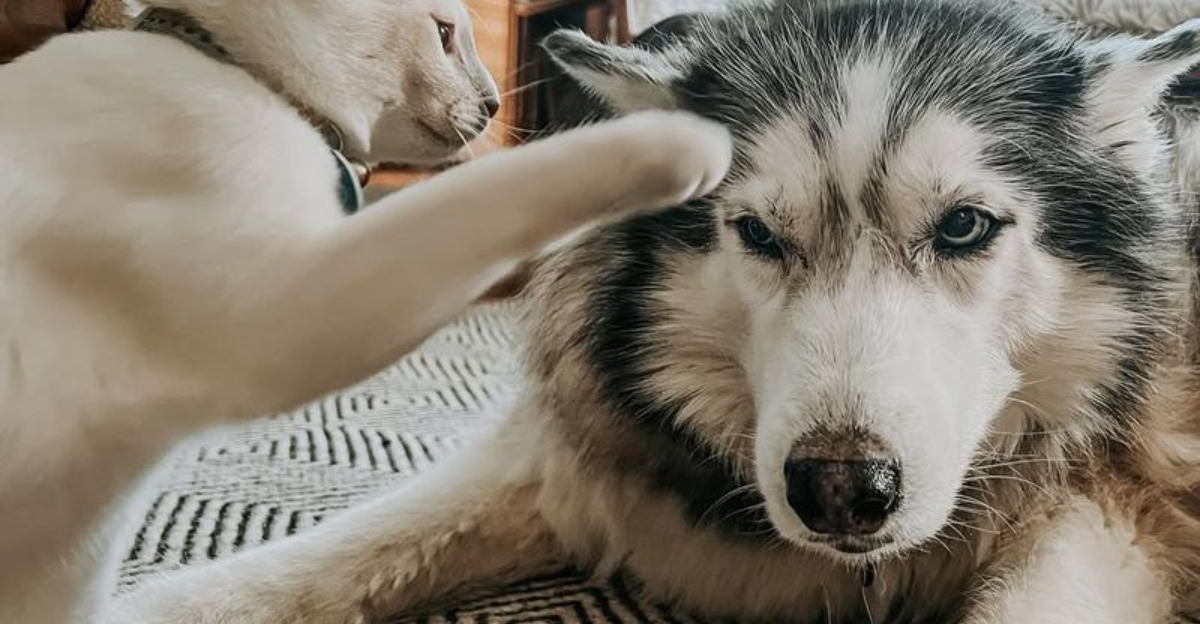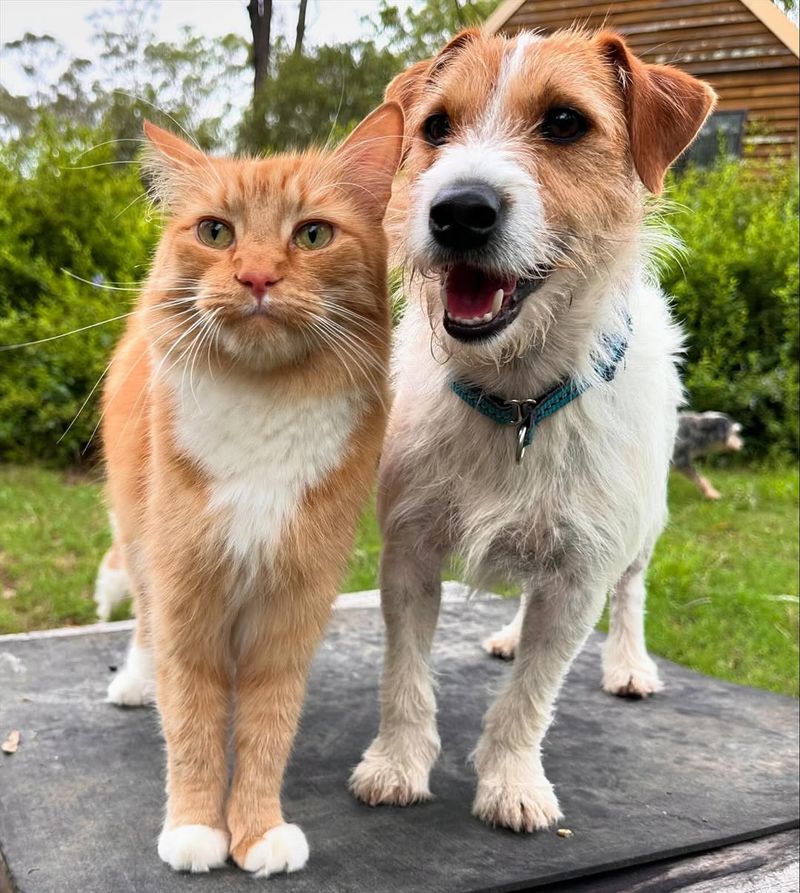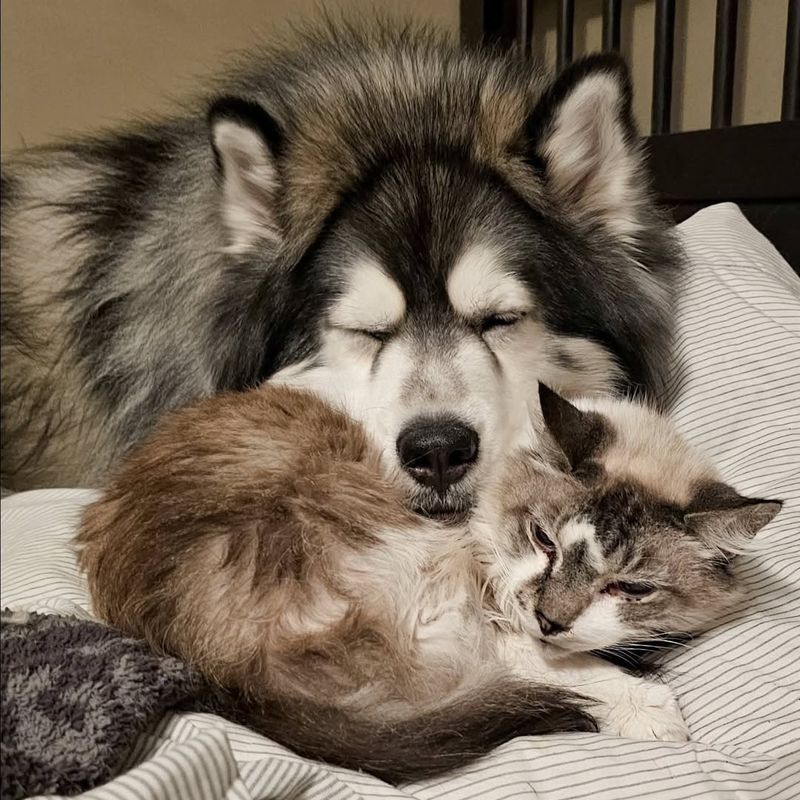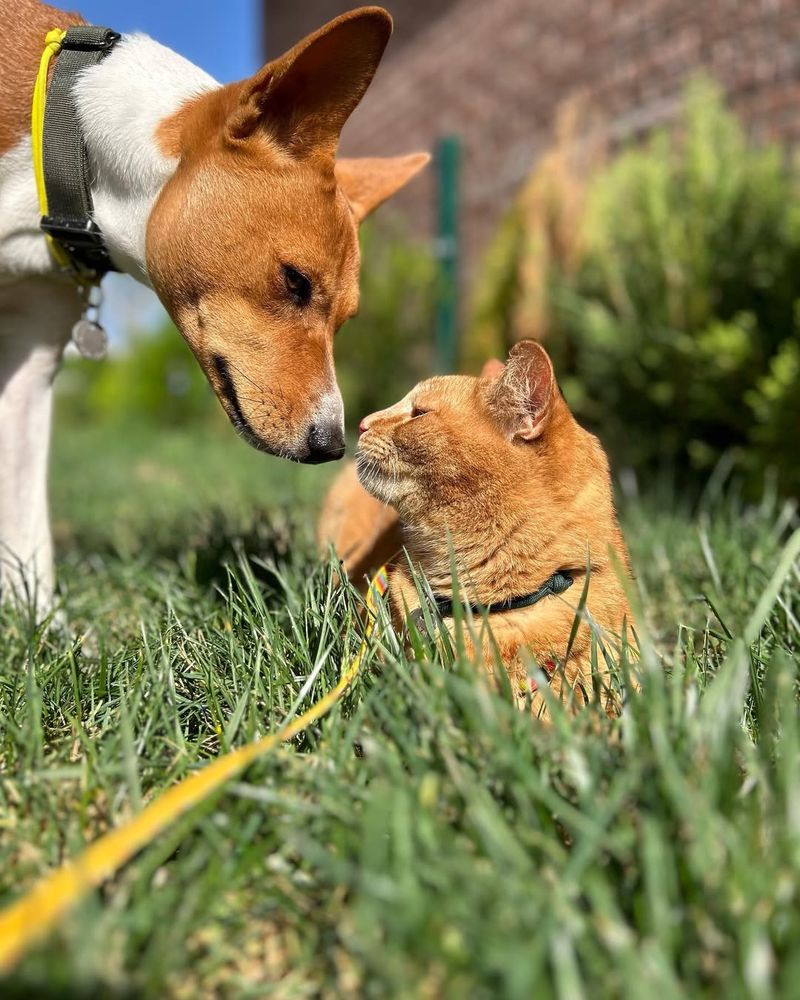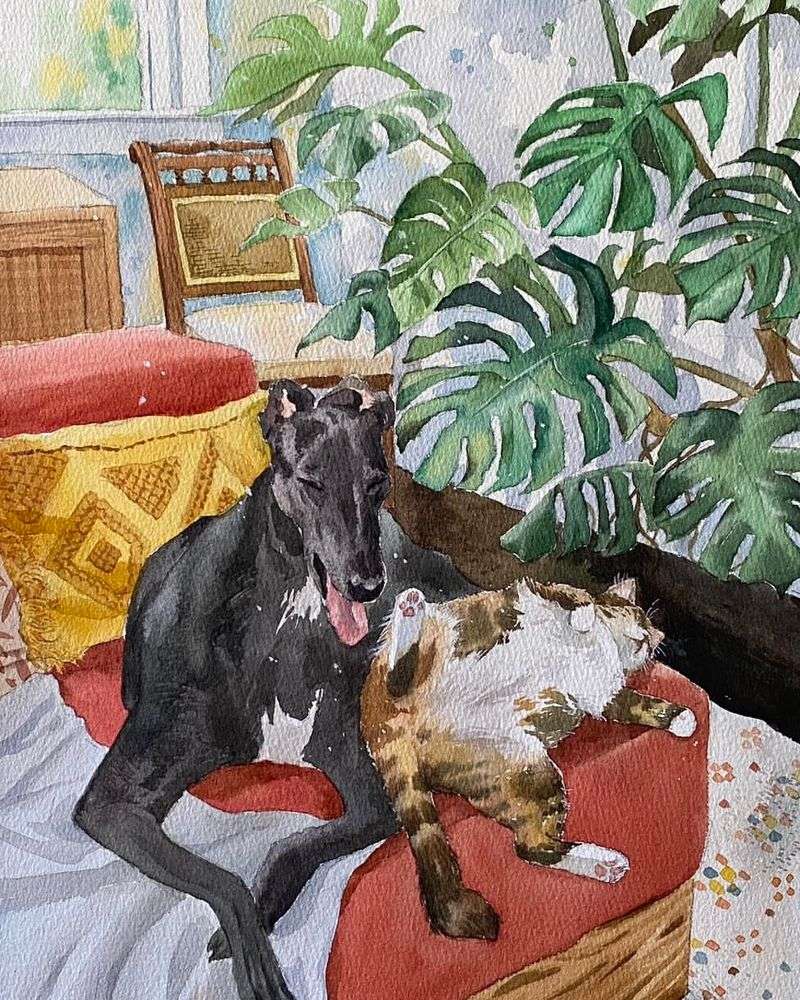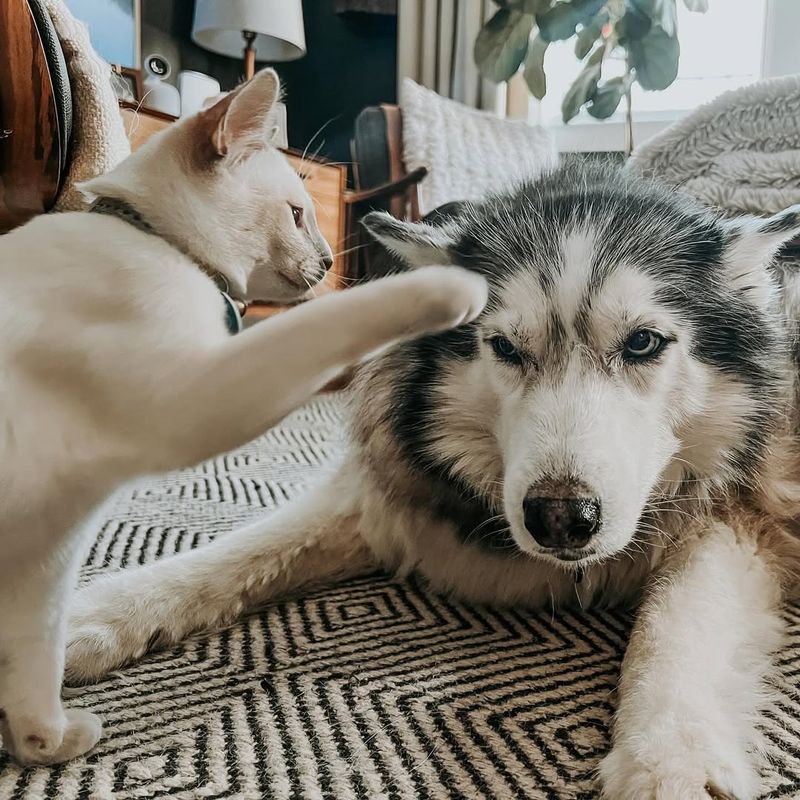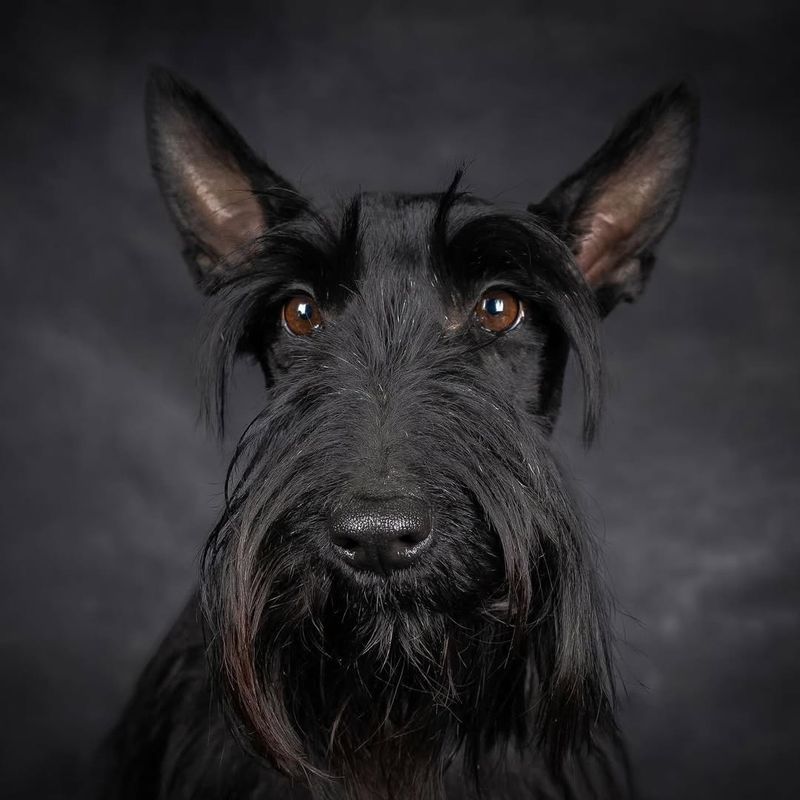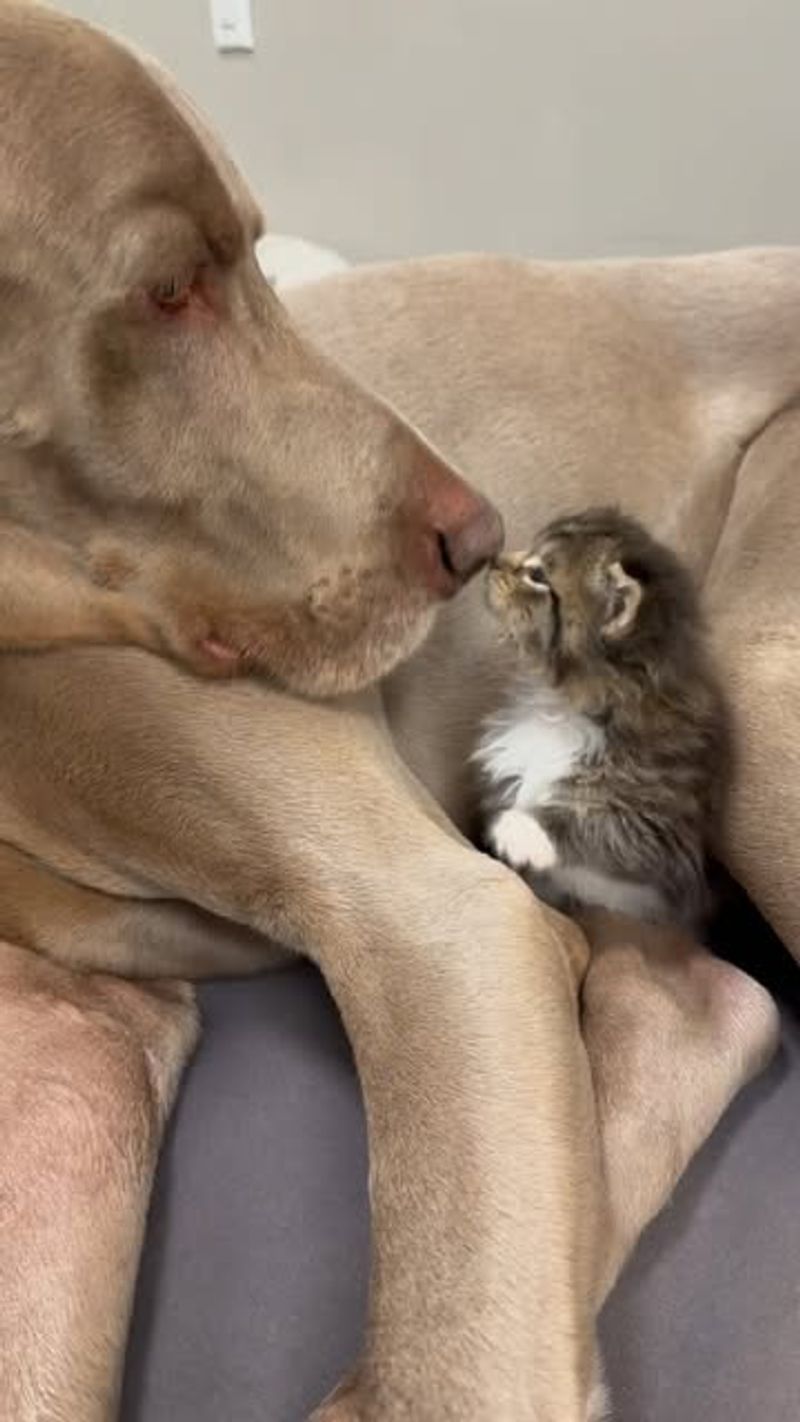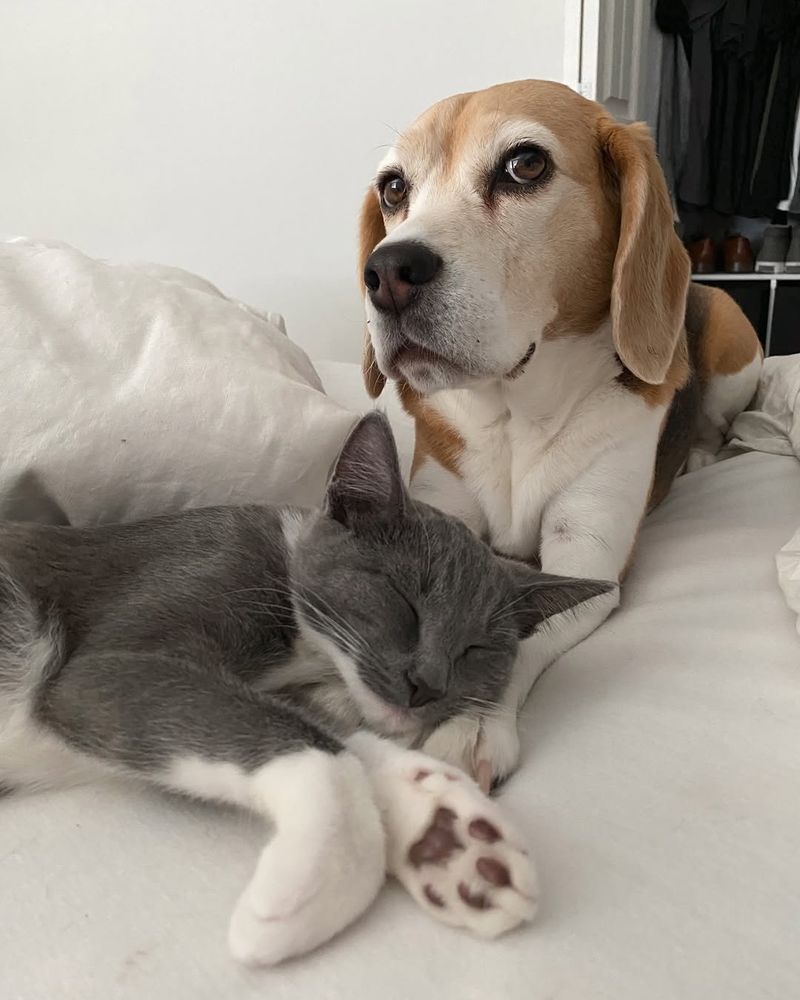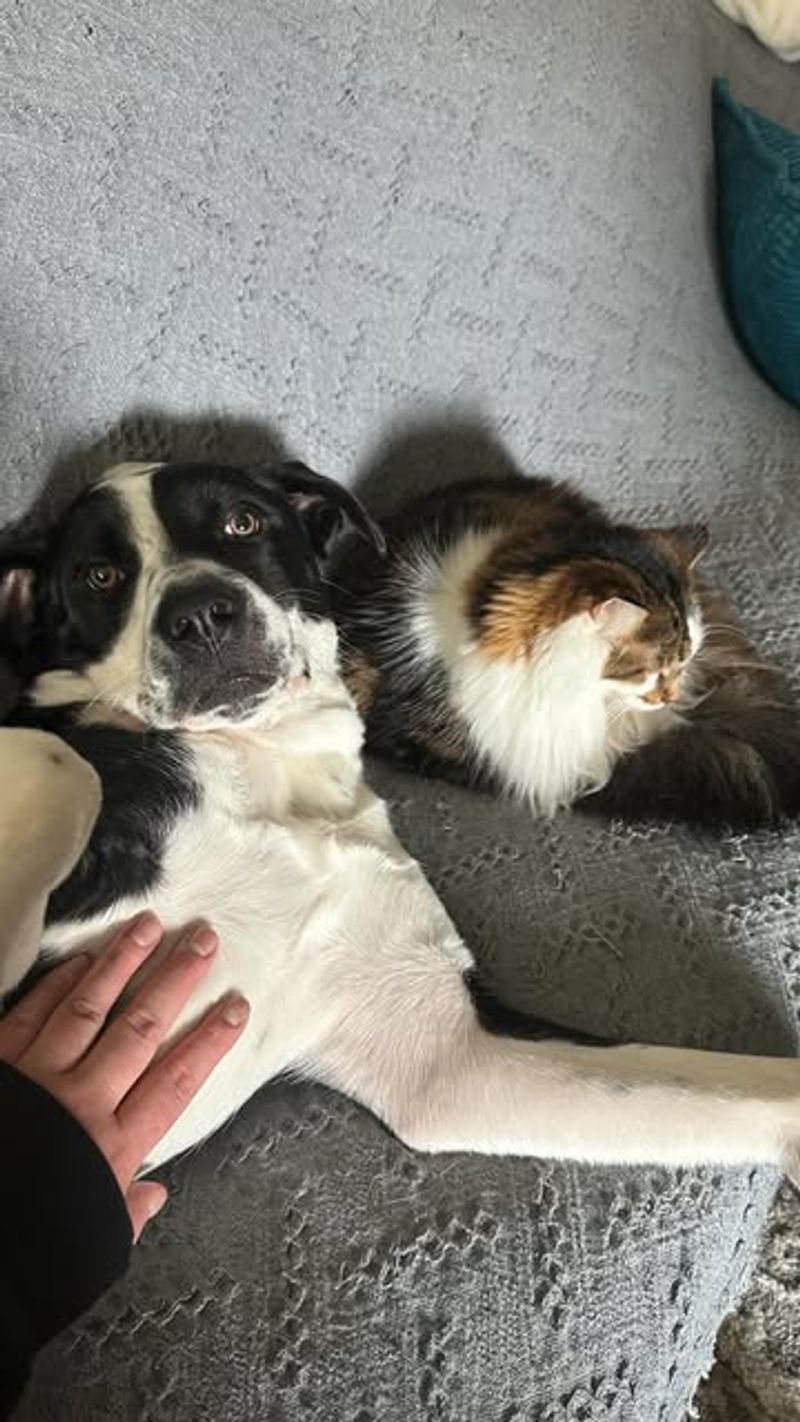Some dog breeds find it especially challenging to live alongside feline companions. These breeds may have strong prey drives, high energy levels, or protective instincts that make harmony with cats difficult. Understanding these traits can help pet owners make informed decisions when choosing pets for a multi-species household. Here, we explore 11 dog breeds that often struggle to coexist with cats, offering insights into their characteristics and behaviors.
Jack Russell Terrier
Jack Russell Terriers are small but mighty, known for their bold personalities and high energy levels. Originally bred for hunting foxes, their prey drive makes them a challenging match for cats. These terriers are incredibly intelligent and curious, leading them to investigate and chase anything that moves. While they can be trained to coexist with cats, it often requires patient, consistent efforts. Given their lively nature, Jack Russells thrive in environments where they can expend their energy, preferably with lots of play and exercise. Their tenacity, though endearing, can be overwhelming for feline companions.
Alaskan Malamute
Alaskan Malamutes are large, powerful dogs with a history of working in harsh conditions. Their independent and sometimes stubborn nature makes training a necessity, especially around smaller animals like cats. These dogs have a strong prey drive, often viewing smaller pets as targets rather than companions. Proper socialization from an early age is crucial to mitigate these tendencies. Malamutes require plenty of exercise and mental stimulation to keep them content. While they can be affectionate family pets, their size and instincts mean they are best suited for homes without cats to prevent incidents.
Basenji
Basenjis, often referred to as “barkless dogs,” are known for their independent and inquisitive nature. These traits can lead to challenges when sharing a space with cats, as their curiosity often extends to chasing. Their hunting instincts are deeply ingrained, making them less likely to tolerate feline housemates. Training and early socialization are vital for fostering peaceful coexistence with cats. Despite their challenges, Basenjis can be devoted companions. Their unique personalities make them fascinating pets, though their relationship with cats may remain complicated, requiring attentive management from owners.
Greyhound
Greyhounds, though gentle and friendly, have a strong instinct to chase anything that moves quickly, including cats. This breed’s history in racing and hunting has ingrained a natural prey drive that can be problematic in cat-owning households. Training Greyhounds to live peacefully with cats requires consistent effort and supervision. While some may adapt well, others retain their chase instincts despite best efforts. Their calm demeanor and affectionate nature make them wonderful pets, but potential cat companions must be considered carefully. Greyhounds thrive in environments where they can safely run and explore without risking feline interactions.
Siberian Husky
Siberian Huskies are known for their high energy and strong prey drive, traits inherited from their sled-pulling ancestors. These dogs are highly intelligent and have a strong instinct to chase smaller animals, including cats. This natural inclination can lead to issues in households where cats are present. Owners must be vigilant in training and socializing Huskies from a young age to prevent unwanted behaviors. Despite their challenges with cats, Huskies are loyal and loving pets, thriving in active homes. Their need for mental and physical stimulation is paramount to keep them happy and reduce conflicts.
Scottish Terrier
Scottish Terriers, affectionately known as Scotties, are renowned for their independent spirit and strong-willed nature. Their natural prey drive can lead to conflicts with cats, often viewing them as quarry rather than fellow pets. Early training and close supervision are essential to managing their interactions with feline housemates. Despite their small size, Scotties are tenacious and bold, sometimes overwhelming for less assertive cats. Owners should focus on providing a structured environment with clear boundaries to foster a peaceful coexistence. With the right approach, Scotties can be loyal and charming companions, albeit challenging for multi-pet households.
Weimaraner
Weimaraners are known for their intelligence and energy, characteristics that can clash with feline companions. Originally bred as hunting dogs, their instinct to chase remains strong and can lead to tense relations with cats. Training Weimaraners to live harmoniously in a multi-pet household requires diligence and consistency. Their high energy levels demand regular exercise and mental stimulation to prevent boredom-related mischief. While Weimaraners can be affectionate and loyal pets, their compatibility with cats often depends on individual temperament and training efforts. Owners must be prepared for the challenges of managing their lively and curious nature.
Dachshund
Dachshunds, with their playful and curious nature, often find it difficult to resist the urge to chase smaller animals like cats. Their hunting background contributes to a strong prey drive that can complicate relationships with feline companions. Training and socialization from a young age are pivotal in encouraging peaceful coexistence. Despite their small stature, Dachshunds are tenacious and may not easily back down from a chase. Providing an environment that allows for safe interaction and setting clear boundaries can help manage their instinctual behaviors. With patience, these loyal dogs can adapt, though they may always view cats as potential prey.
Airedale Terrier
Airedale Terriers, the largest of the terrier breeds, possess a bold and energetic nature that can lead to challenges with smaller pets like cats. Their strong prey drive and inquisitive spirit often result in chasing behaviors. Training and socialization are critical from an early age to encourage harmony in a multi-pet household. Airedales need clear guidance and structure to help manage their instincts. Despite these challenges, Airedales are highly intelligent and make loving companions. Owners must be vigilant and proactive in fostering positive interactions with cats, ensuring a peaceful environment for all pets involved.
Beagle
Beagles are renowned for their friendly nature and excellent scent-tracking abilities. However, their hunting instincts can create issues in homes with cats. Known for their persistence, Beagles often follow their noses, which can lead them to chase feline friends. Training Beagles to coexist peacefully with cats requires consistent reinforcement and supervision. These dogs are pack animals and may adapt well with the right guidance. Beagles thrive in environments where they have ample opportunity to explore and satisfy their curiosity. While they can become great companions over time, their instinctual behaviors may always need monitoring around cats.
Border Collie
Border Collies are acclaimed for their intelligence and herding skills, yet these traits can pose challenges in multi-pet households, particularly with cats. Their herding instincts may prompt them to chase and “herd” feline companions. Providing mental stimulation and clear, consistent training can help mitigate these tendencies, encouraging positive interactions. Border Collies require ample exercise and mental engagement to prevent frustration-driven behaviors. Though they may struggle with cats, Border Collies are affectionate and loyal pets. Their high energy and need for activity make them better suited for environments where they can channel their instincts appropriately.
